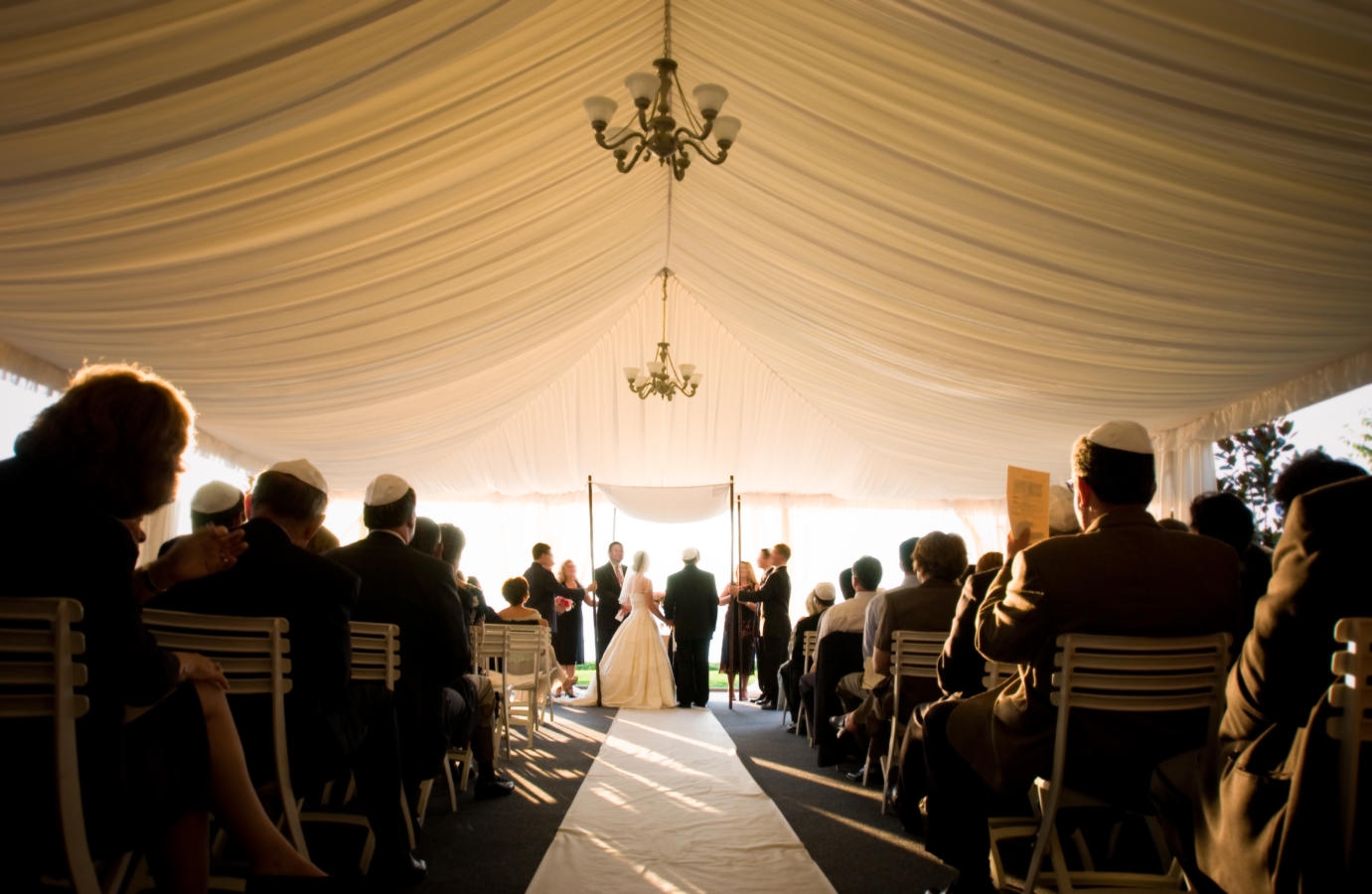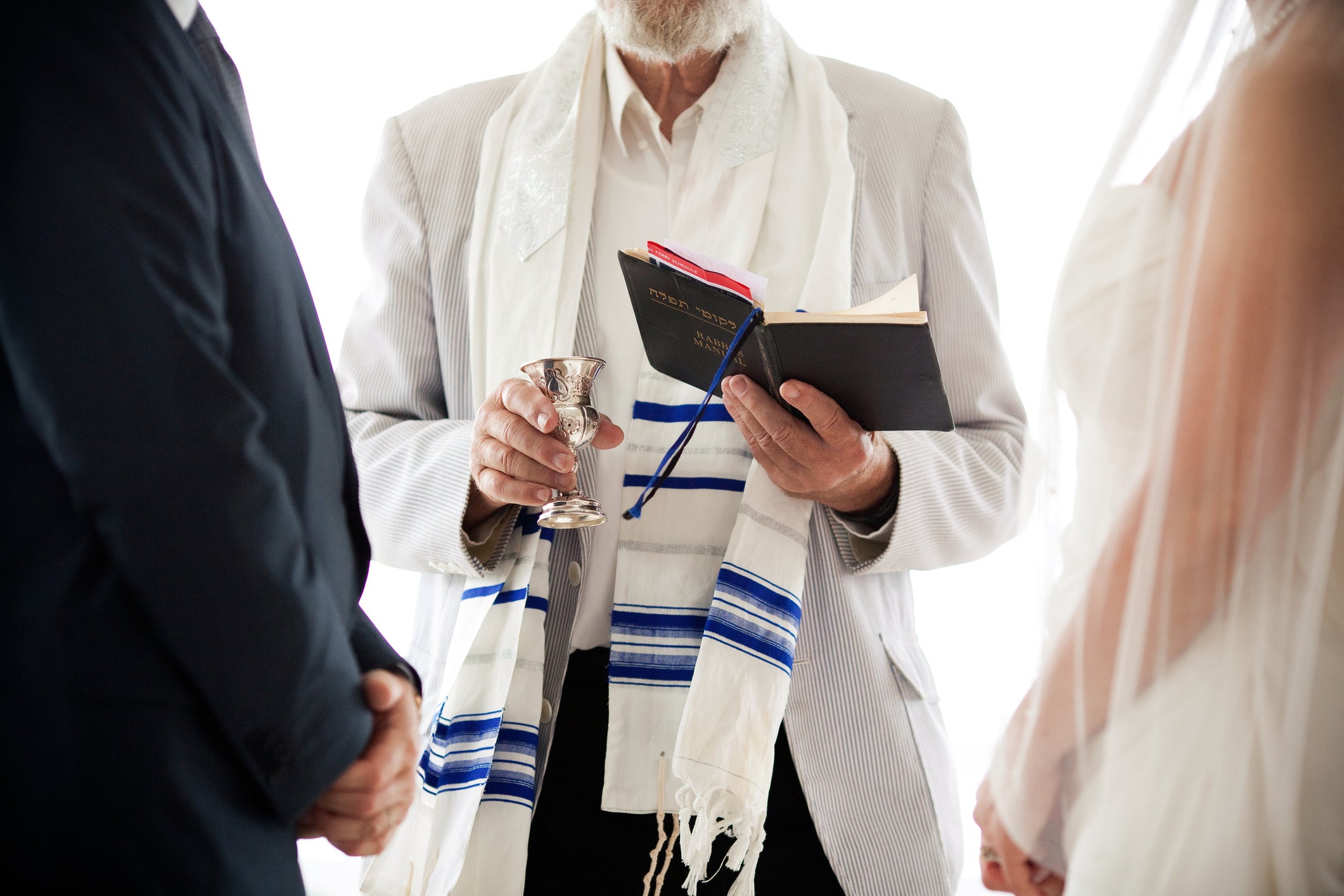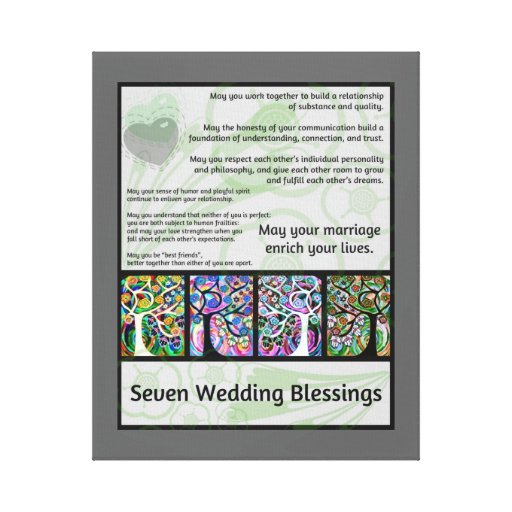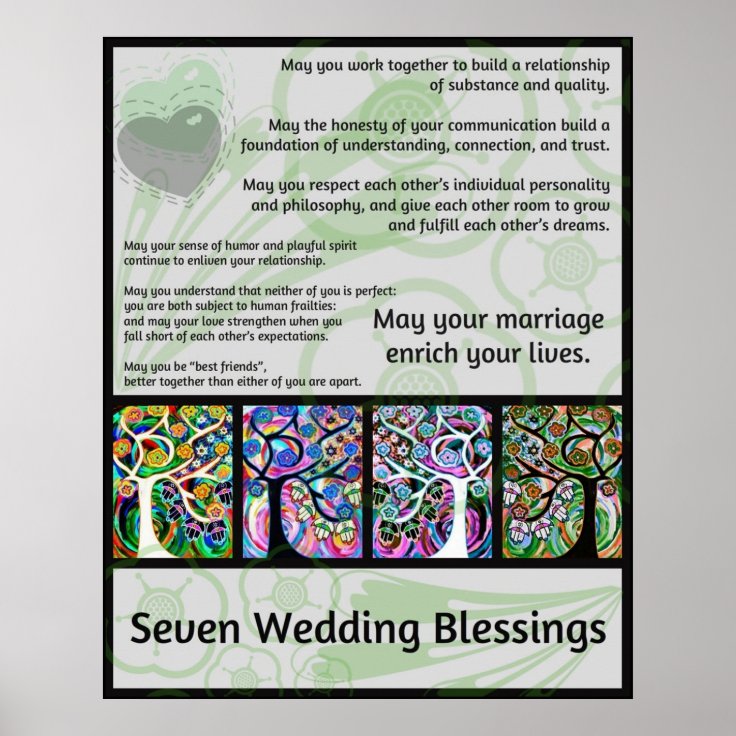The Seven Blessings: A Timeless Tradition In Modern Jewish Weddings
The Seven Blessings: A Timeless Tradition in Modern Jewish Weddings
Related Articles: The Seven Blessings: A Timeless Tradition in Modern Jewish Weddings
Introduction
In this auspicious occasion, we are delighted to delve into the intriguing topic related to The Seven Blessings: A Timeless Tradition in Modern Jewish Weddings. Let’s weave interesting information and offer fresh perspectives to the readers.
Table of Content
The Seven Blessings: A Timeless Tradition in Modern Jewish Weddings

The Seven Blessings, known in Hebrew as Sheva Brachot, are a cornerstone of Jewish wedding ceremonies, symbolizing the union of two individuals and the blessings bestowed upon them as they embark on their journey together. While the traditional wording of the blessings remains unchanged, their interpretation and integration into modern Jewish weddings have evolved to reflect contemporary values and perspectives.
The Seven Blessings: A Deeper Dive
Each of the seven blessings carries a distinct meaning, offering a rich tapestry of hopes and aspirations for the newly married couple.
- The Blessing of Creation: This first blessing acknowledges the power of God in creating the universe and all its wonders, including the beauty and complexity of human love. It sets the stage for the sacredness of the union about to unfold.
- The Blessing of Wine: This blessing celebrates the joy and celebration of the wedding, emphasizing the role of wine as a symbol of festivity and shared experiences.
- The Blessing of Abundance: This blessing expresses the hope for a life filled with prosperity, joy, and abundance, both materially and spiritually. It recognizes the importance of providing for the couple’s future needs and aspirations.
- The Blessing of Joy: This blessing focuses on the shared happiness and companionship that the couple will experience throughout their lives. It celebrates the power of love to bring joy and fulfillment.
- The Blessing of Redemption: This blessing acknowledges the challenges that life may bring and emphasizes the importance of seeking solace and support in one another. It emphasizes the strength and resilience of a loving partnership.
- The Blessing of Peace: This blessing speaks to the desire for peace and harmony within the couple’s relationship and in the world around them. It highlights the importance of fostering understanding and compassion.
- The Blessing of Building a Home: This final blessing celebrates the creation of a new family and home, filled with love, laughter, and the promise of future generations. It signifies the continuation of the Jewish tradition through the couple’s union.
Modern Interpretations and Adaptations
While the core meaning of the Seven Blessings remains constant, their interpretation and integration into modern Jewish weddings have evolved to reflect contemporary values and perspectives. Some common adaptations include:
- Gender-Neutral Language: Traditionally, the blessings were worded in a way that reflected a patriarchal understanding of marriage. Modern couples often choose to use gender-neutral language, reflecting a more egalitarian approach to partnership.
- Personalization: Couples may choose to personalize the blessings by adding their own words or sentiments, reflecting their unique relationship and values. This can be done through incorporating personal anecdotes, shared dreams, or specific wishes for their future.
- Musical Accompaniment: The blessings can be recited with musical accompaniment, enhancing the emotional impact and adding a contemporary touch to the ceremony.
- Interactive Participation: Modern couples may choose to involve their guests in the recitation of the blessings, creating a more participatory and inclusive experience.
Benefits of the Seven Blessings
The Seven Blessings offer numerous benefits to the newly married couple and their families:
- A Shared Foundation: The blessings provide a shared foundation of values and aspirations for the couple, offering a framework for their future together.
- A Symbol of Unity: The blessings symbolize the coming together of two individuals into one unit, emphasizing the strength and support that a partnership provides.
- A Source of Hope and Inspiration: The blessings offer hope and inspiration for the couple’s journey, reminding them of the beauty and possibilities that lie ahead.
- A Connection to Tradition: The blessings connect the couple to their Jewish heritage and the legacy of countless couples who have come before them.
- A Celebration of Love: The blessings are a celebration of love in all its forms, recognizing the power of human connection and the joy of shared experiences.
FAQs
Q: Can the Seven Blessings be recited in languages other than Hebrew?
A: While the traditional wording of the blessings is in Hebrew, couples can choose to have them recited in other languages as well, ensuring that all guests understand the meaning and significance of the ceremony.
Q: Are there any specific rituals associated with the Seven Blessings?
A: The recitation of the Seven Blessings is typically accompanied by a ritual known as yichud (separation), where the couple is briefly separated after the blessings to symbolize the beginning of their new life together.
Q: Can couples choose to omit certain blessings?
A: While it is not common practice, couples may choose to omit certain blessings if they feel they do not resonate with their personal beliefs or values. However, it is important to consult with a rabbi or other religious authority to ensure that any changes are consistent with Jewish tradition.
Tips
- Choose a Rabbi or Officiant who understands your vision: Find someone who can help you personalize the blessings and incorporate your unique values and beliefs.
- Involve your guests: Consider having guests participate in the recitation of the blessings, creating a sense of community and shared joy.
- Use music to enhance the emotional impact: Choose music that resonates with the themes of the blessings and adds a personal touch to the ceremony.
- Consider the symbolism of the blessings: Reflect on the meaning behind each blessing and how they relate to your own hopes and aspirations for your marriage.
Conclusion
The Seven Blessings are a timeless tradition that continues to hold deep meaning and significance for Jewish couples today. While the wording of the blessings remains unchanged, their interpretation and integration into modern Jewish weddings have evolved to reflect contemporary values and perspectives. By embracing these blessings, couples can create a ceremony that is both meaningful and personal, celebrating the beginning of their journey together and the promise of a future filled with love, joy, and shared purpose.





:max_bytes(150000):strip_icc()/jewish-wedding-ceremony-traditions-color4-d0112f25bffc49f6b45ccc83878e095c.jpg)


Closure
Thus, we hope this article has provided valuable insights into The Seven Blessings: A Timeless Tradition in Modern Jewish Weddings. We thank you for taking the time to read this article. See you in our next article!